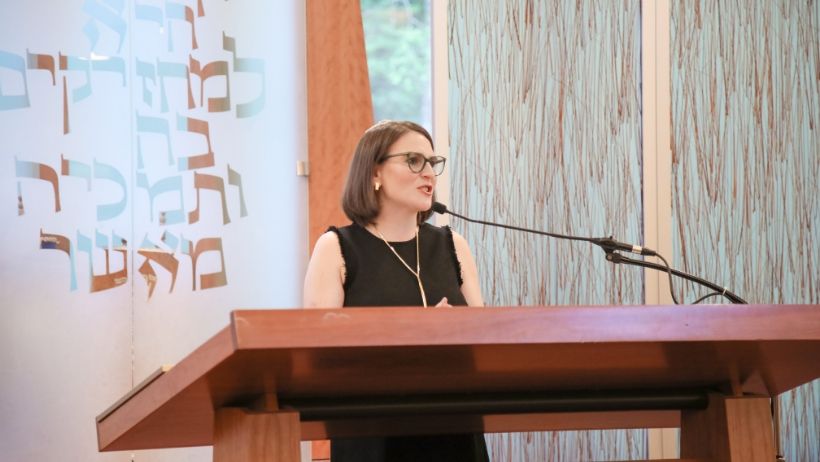When I entered rabbinical school, I was convinced that I was the right person to be an “education rabbi.” I never saw myself as a pulpit rabbi, thinking I didn’t have the stamina or disposition to sustain the rigors of pulpit work. I wasn’t sure I could do funerals or b’nai mitzvah with the grace, conviction, or authority as the rabbis I had grown up with, so I followed a slightly different path. I sought out positions in education and the day school world so I could work where I thought I would excel. Then four years into my rabbinate at a day school I had to decide if teaching middle schoolers was really my strong suit, but because I hadn’t been a full-time synagogue professional, I felt torn in different directions, neither of which seemed exactly right at the time. I was terrified of leaving the day school world I know, yet wasn’t sure synagogue life was right for me. Then I took a leap.

This week in our parshah, the Israelites follow a story not so different from mine as we enter into the final book of the Torah, Devarim (Deuteronomy). Devarim stresses the covenant between God and Israel and looks toward Israel’s future in a new land as they build a society that pursues justice and righteousness. The central theme of this section of text is monotheism, the belief in one God, and building a society around the laws we’ve been given over the course of the four previous books.
Moses has been the leader of the Israelite nation for the entire Exodus and origin of the nation. While he was the right person for that part of the job, delivering God’s message and inspiring with his own words, life in the land of Israel will be very different. As they arrive at this pivotal moment, Moses says, “I cannot bear the burden of you by myself.” Moses is aware that it is no longer the time for preaching and teaching of the new laws. It will soon be time for battles and conquering the land. Moses is self-aware enough to know this is not his strength as a leader.
As a day school rabbi, I quickly learned that I needed more expertise in the classroom. Of course this expertise comes from years of experience, so I sought out mentors and advisers and asked seasoned teachers to observe my class and provide feedback. But when that didn’t seem to improve my classroom comfort level, it was time to evaluate whether I was the right person for the job. Now, several years later, I’ve had the benefit of not only trying a different path and loving it, but also learning enough from my previous experiences to discover I even like teaching middle schoolers, just not when it’s all I do!
In life we all have endeavors in which we excel, as well as endeavors in which we might expect to excel, but for whatever reason don’t. The Torah this week reminds us that it’s never too late to switch paths or admit that a certain job might not be the right job. Just because you have a job that you think you might love doesn’t mean you’ll be successful at it. When it’s time to make that decision, may we do it with the strength and self-awareness of Moses.



